Adventures, Teams, and Travels
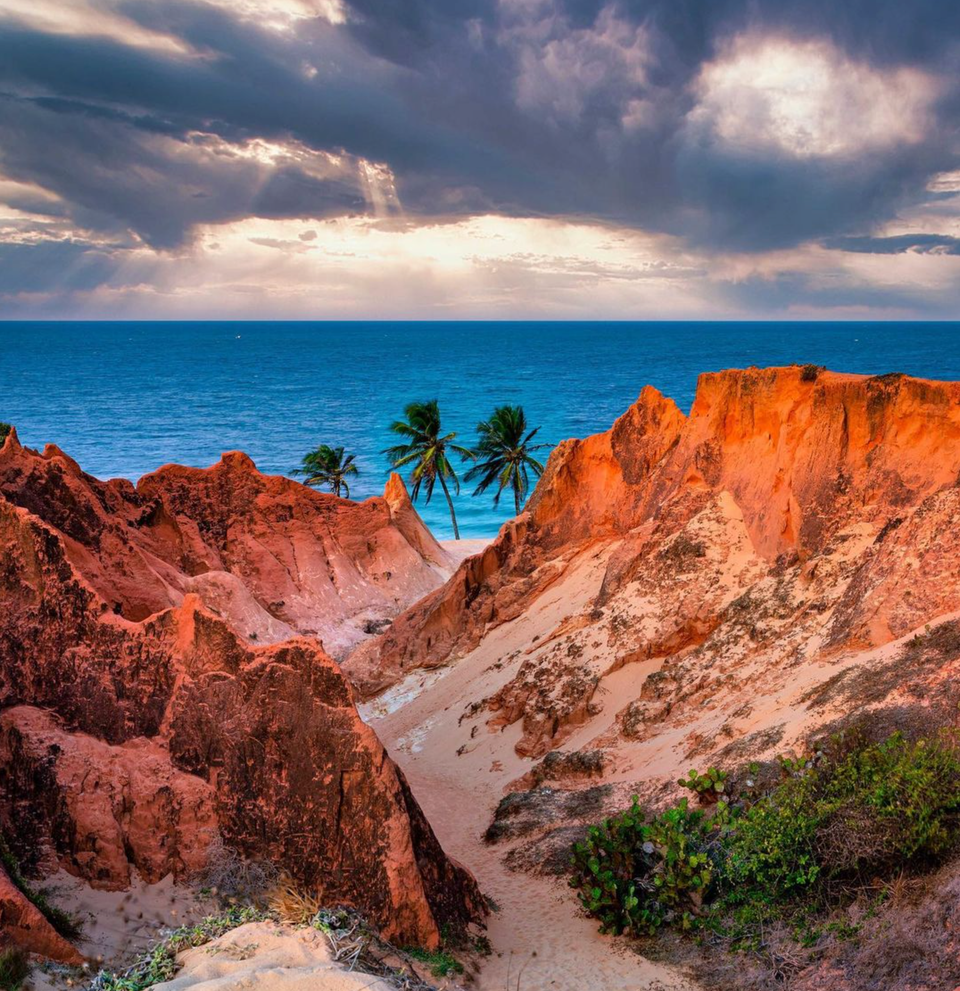
I enjoy Amyr Klink's books. Someone who decides to leave the coast of Africa in a rowboat, and 100 days later, alone, rowing across the entire Atlantic, arrives in Brazil, in the city of Salvador, safe and sound.
I'm referring to the book "100 Days Between Sky and Sea" (https://amzn.to/49euAwE). My story with Amyr began when I received this book as a gift several years ago. I found it to be a very enjoyable read about a man who sets out to sea and, after 100 days, demonstrates that his crazy dream is possible.
I became a fan. And in becoming a fan, I ended up discovering other great explorers, some mentioned by Amyr himself who inspired him on this journey. Ernest Shackleton was one of them.
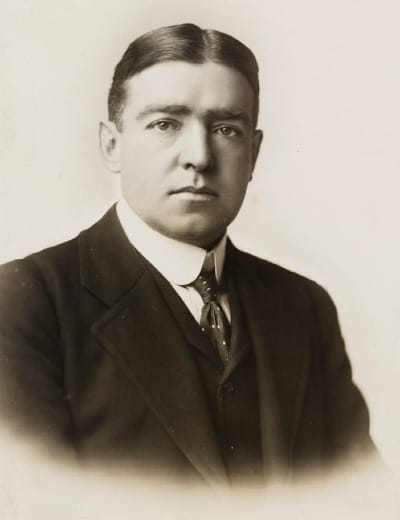
Shackleton was an explorer who, at the beginning of the 20th century, attempted to reach the South Pole at a time when that region was a vast and unexplored area of the world. He tried to achieve this goal twice, but lost the race to other explorers.
However, the fact that he did not succeed in winning this exploration race is just a detail in one of the most incredible stories of resilience and leadership.
In August 1901, Shackleton, then 27 years old, joined Sir Robert Scott's expedition to the South Pole. They came closer to the South Pole than anyone else had before, but Shackleton fell ill and had to return home.
Then, he set himself a goal - to be the first explorer to cross the Arctic continent on foot.
"I am haunted by the mysterious south. I see myself one day reaching the origins of ice and snow, going on and on, until I reach the opposite of the Earth, the end of the axes, where the great round ball turns." (Ernest Shackleton)
On August 8, 1914, the expedition began. Imagine facing temperatures of -50 degrees Celsius in the clothing of an explorer from the early 20th century! Initially composed of 27 crew members, the ship, named Endurance (a fitting name, indeed), set sail for Antarctica.
Three months and 27 days later, it made contact with the last human outpost, a whaling station on the island of South Georgia. The Endurance headed for a large icy area of Antarctica.
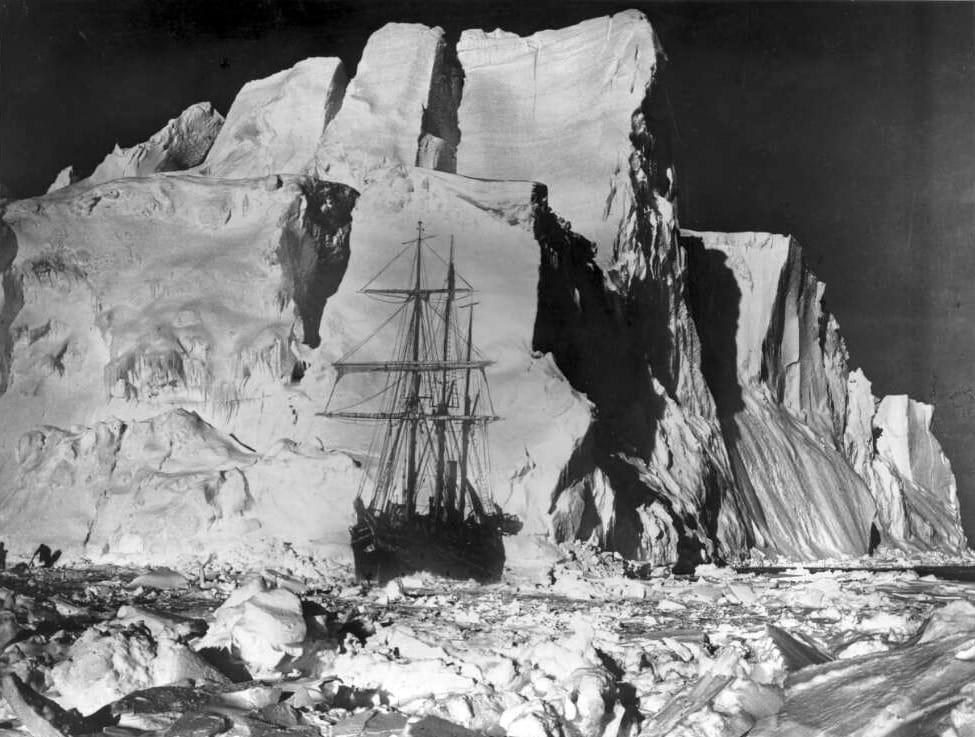
And 5 months and 10 days later, it gets stuck in the ice, preventing the ship from moving altogether.
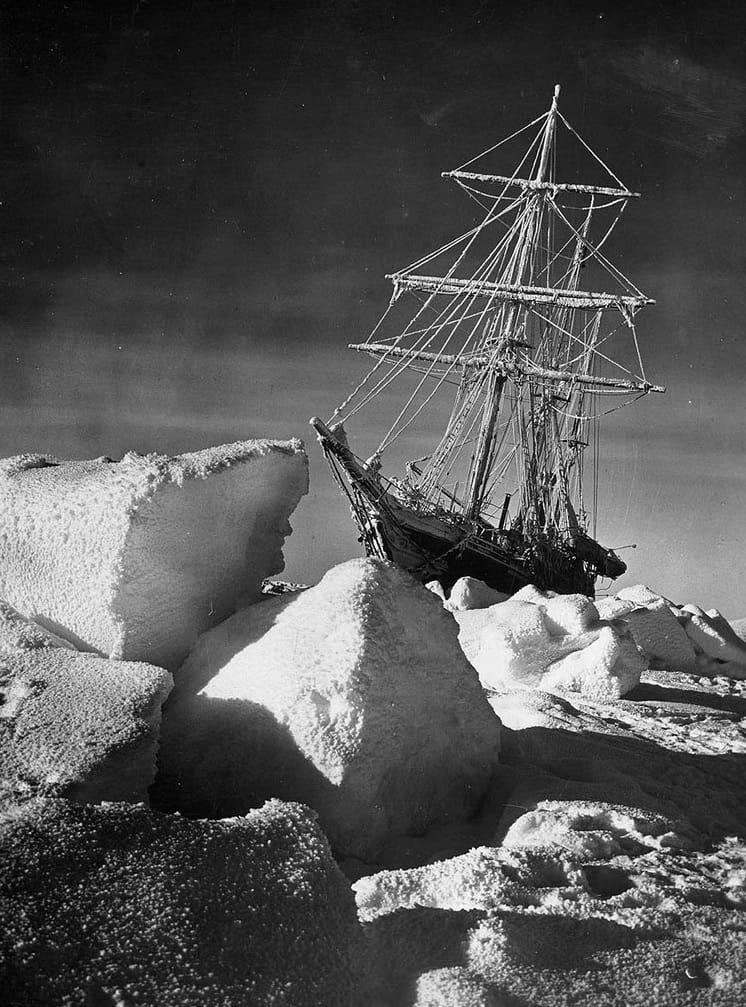
The crew makes every possible effort to free the boat. However, the weather conditions do not help. The ice reforms around the ship so quickly that it is impossible to release it.
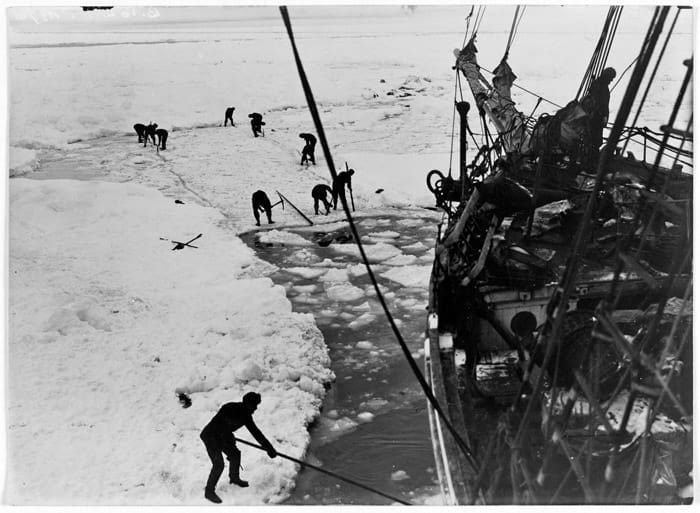
So they decide to do the only possible thing - wait. Wait out the entire winter so that in the Antarctic summer, the ship can be freed and they can continue the journey. And they patiently wait for another 9 months (!) inside the ship. 14 months and 19 days after departure, the Endurance begins to be crushed by enormous blocks of ice. The crew decides to abandon the ship.
Unable to withstand the pressure, exactly 15 months and 13 days after the start of the expedition, the Endurance sinks in Antarctica, leaving the entire crew with only a few tents, a lifeboat, and the few supplies they managed to salvage from the ship.
The entire crew remains in the same spot, waiting for the weather conditions to improve, subsisting on seals and whatever they could hunt, and living as best they could.
Five months later, 20 months and 1 day since the start of the expedition, Shackleton decides to set sail with the remaining lifeboat, along with two more crew members, to seek help. Perhaps they could return to South Georgia and ask for help at the whaling station?
The journey was not easy. It took them two weeks at sea, rowing, until they managed to reach the island. Unfortunately, they arrive on the opposite side of the whaling station on the island. Unable to navigate around the island by boat, they decide to walk to the other end, facing an abyss of ice and mountains. The three crew members endured 36 hours without rest and without stopping to reach the station.
Upon arriving at the station, they were taken to the manager's office. Their faces were gray, hair tangled. "Who are you?" asked the manager. And he responds, "My name is Shackleton." The manager turned and began to cry. Everyone knew who Shackleton was, but no one believed he was there, in front of them, alive.
Shackleton is finally safe, but his thoughts are with the men he left behind. These men had been away from home for almost two years, trapped in the ice since the beginning of this unbelievable adventure.
He makes three attempts to return to rescue his men, but the ice does not allow him to reach them. He keeps trying for another four months! For the men who remained, all hope had vanished. They no longer believed they would be rescued and return home.
Until on August 30, 1916, they spotted a ship coming toward them. When the boat came close enough for them to be heard, they shouted, "all well, all well!"
Shackleton was on the small boat, anxiously counting all the figures on the ice beach. He looks to the side and says - they're all there! They're all saved!
No lives were lost. The entire crew was saved.
This is the most incredible story of resilience, perseverance, and leadership I have ever read. And what impresses me the most is that it's a true story.
Teams
The lesson here is that a leader needs to protect their team. This team will cross oceans and withstand the toughest trials if they understand that there is a leader and a purpose behind everything they are experiencing.
It took me a while to internalize this. Protecting your team doesn't mean shielding them from difficulty, sometimes even the impossible. On the contrary. A leader needs to push their team to deliver their best, pushing boundaries that they often didn't even know they could surpass, and this will cause pain.
Shackleton formed a team that knew they could trust him and that he would fight to the end to achieve the goal, or bring them back home safely.
Protecting the team means creating a safe enough environment for them to take leaps, knowing that you will be their safety net. Believe me, they will leap further every day.
About traveling...
GreenMile, the company I co-founded, grew. From a small startup in Ceará, Brazil, it became a company selling software worldwide. It was an incredible and intense journey that took me to places I never thought I would go. Our first client outside of Brazil was in Israel, but I had the opportunity to visit Japan, several countries in Europe, Latin America, numerous places in the USA, and Canada. To experience different cultures, different business realities, diverse languages... It was enriching.
After several trips around the world in miles, I ended my journey there with an exit in 2021. We reached places we had never thought of reaching. But we only got there because of a tireless team that dreamed for many years a dream together with me. Who worked hard and gave their best on a tough journey of over 10 years. It wasn't easy, but I can only thank everyone who was part of this story. Thank you!
And traveling has become part of my life.
Leaving home, looking at the world, returning to finally find what you went out in search of. To find oneself.
"A man needs to travel. By his own account, not through stories, images, books, or TV. He needs to travel for himself, with his eyes and feet, to understand what is his. To one day plant his own trees and give them value. To know cold to enjoy warmth. And the opposite. To feel distance and homelessness to be well under his own roof. A man needs to travel to places he does not know to break the arrogance that makes us see the world as we imagine it, and not simply as it is or can be. That makes us teachers and doctors of what we have not seen when we should be students, and simply go and see." (Amyr Klink)
Some references:
- Video about Shackleton's voyage - https://www.youtube.com/watch?v=fzSU5VwQ_Ec
- Real photos of the expedition illustrating this text - https://www.coolantarctica.com/Antarctica fact file/History/Ernest_Shackleton_pictures.php
- Expedition Timeline - https://www.coolantarctica.com/Antarctica fact file/History/Ernest_Shackleton_map_time_line.php
I dedicate this text to my friend Elizardo Medeiros, who, in a day of long conversations, came up with a phrase that still resonates with me today - "always take care of your team!".